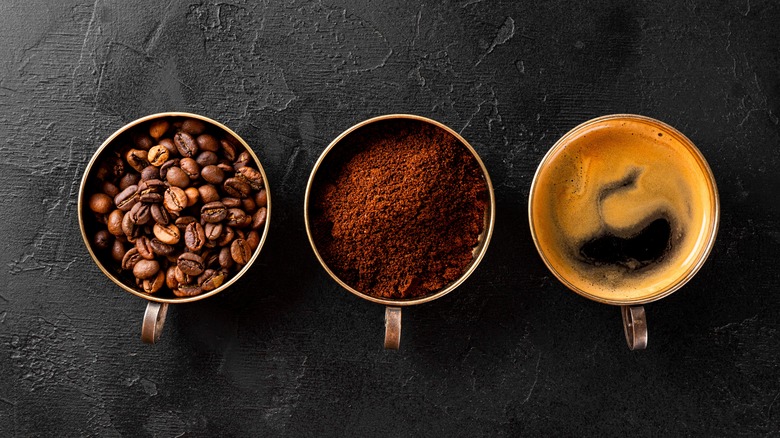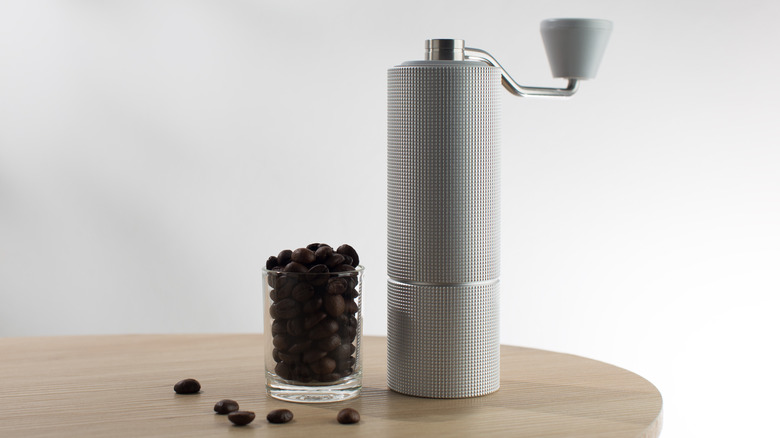Why You Should Always Grind Your Own Coffee Beans
When a coffee craving strikes, every second you have to wait feels like a year, so it's definitely tempting to reach for a bag of pre-ground beans for the sake of convenience. However, when you buy bagged coffee (or even run fresh beans through an electric machine at the store), you are basically guaranteeing that you will have a less flavorful brew. Food Republic spoke to Matt Woodburn-Simmonds of Home Coffee Expert to find out why grinding your coffee at home is essential. He considers a high-quality grinder to be "one of the absolute best investments you can make for your coffee brewing."
Woodburn-Simmonds explained the science behind why a fresh grind equates to better flavor: "The volatile oils that are released from inside the beans when they are ground evaporate in around 45 minutes, taking all their deliciousness with them." Those oils and other compounds are the driving force behind both the enticing aroma and rich taste of a well-made cup of joe. Now, this is not to say that your coffee will automatically taste bad if it is made from pre-ground beans, but it is definitely not ideal when compared to coffee that's ground just before brewing.
Additionally, whole beans maintain their freshness for significantly longer, so they are a better choice for at-home storage, creating less of a chance of weak, stale coffee a few days after purchase. And you don't actually need a coffee canister to keep your morning joe fresh — any opaque and airtight container will work here.
The best type of coffee grinder
There are two main types of coffee grinders: burr and blade. Burr grinders work by crushing the beans between a grinding wheel and a hard surface, while blade grinders slice through and pulverize the beans, creating an inconsistent product containing both large shards and fine powder. The powder is a red flag here, since when coffee is ground too finely, more bitter and unpleasant compounds are released into the final drink. Even more importantly, burr types produce more uniform pieces, which in turn "give more consistent extraction and better tasting coffee," according to Matt Woodburn-Simmonds.
It is also important to research the best grinder setting for your coffee based on your preferred brewing method. For example, a French press requires quite a coarse grind, while an espresso machine needs coffee that is about the same consistency as granulated sugar. And just as it is vital to regularly soap up your French press and clean your Keurig often for the best tasting coffee, removing the oil residue that accumulates in your coffee grinder is also essential.
Woodburn-Simmonds recommended a weekly clean for any grinder. "No one needs another cleaning task," he admitted, "But this doesn't take long, and [your] coffee [flavor] will be amazing for years." You can start by passing uncooked rice through the coffee grinder to absorb excess oils. Then, separate the parts; clean them with warm, soapy water; and dry them well with a microfiber towel before reassembling.


